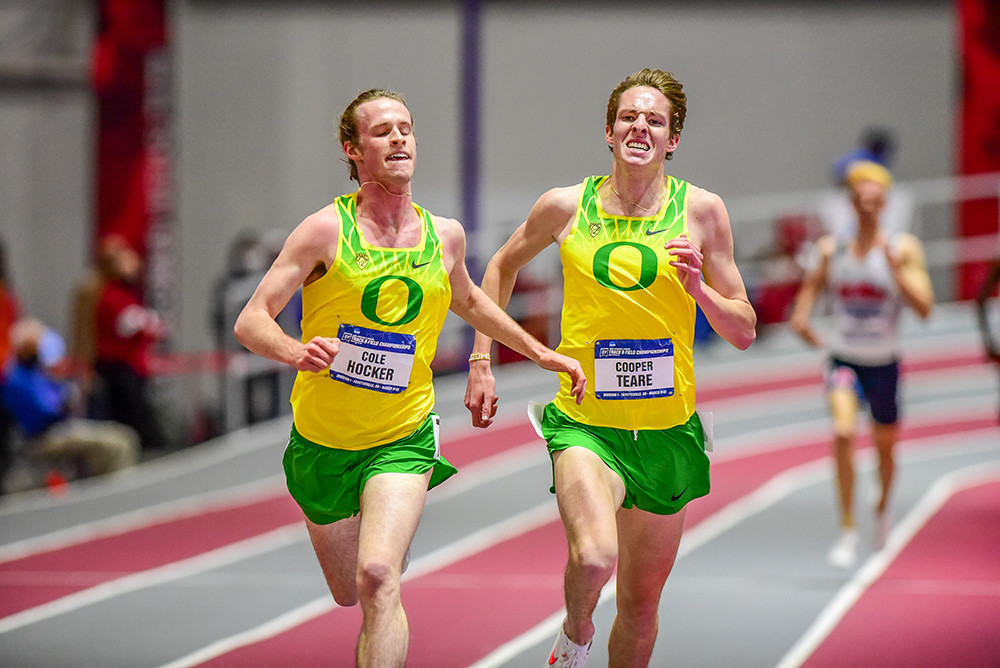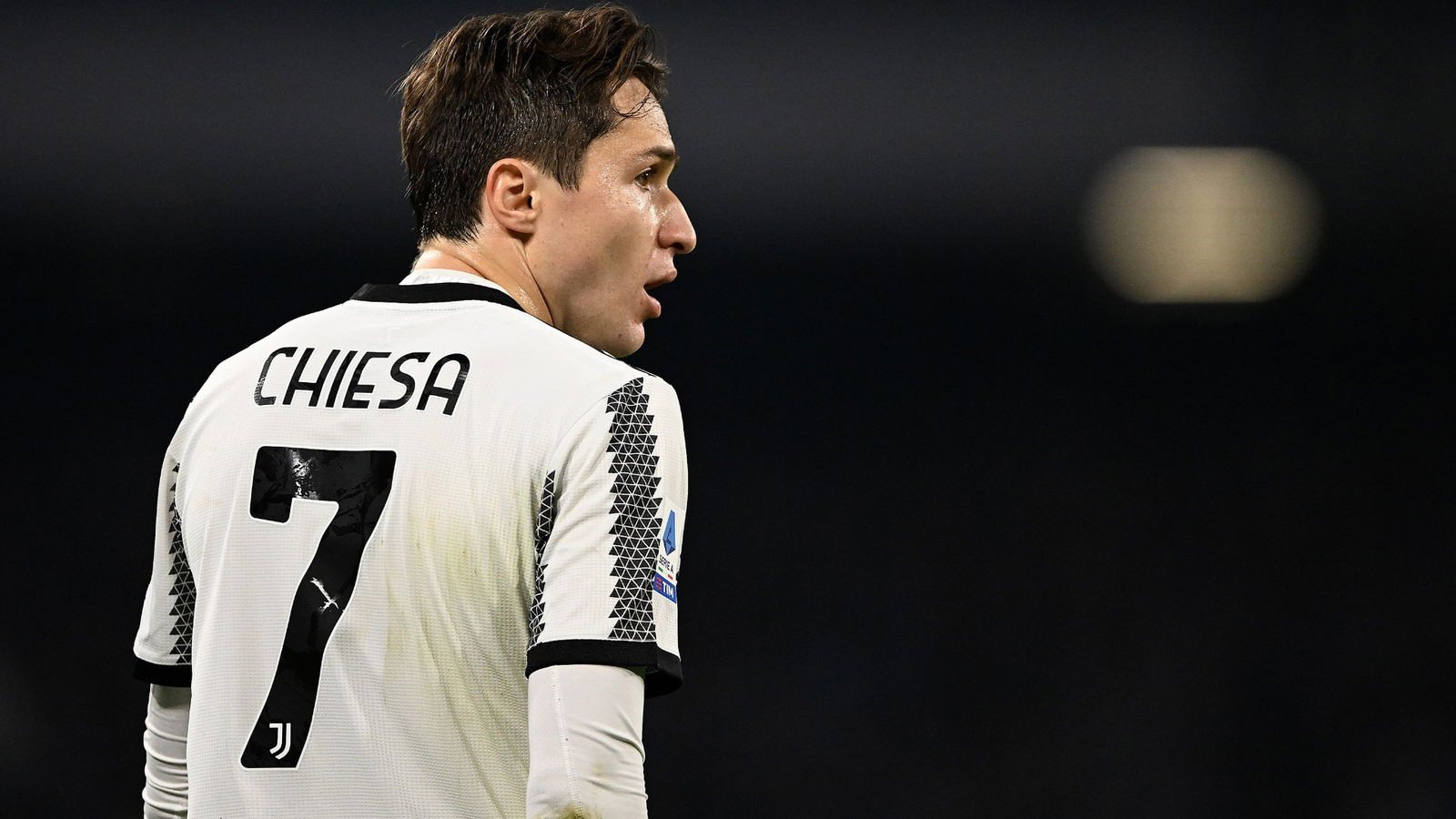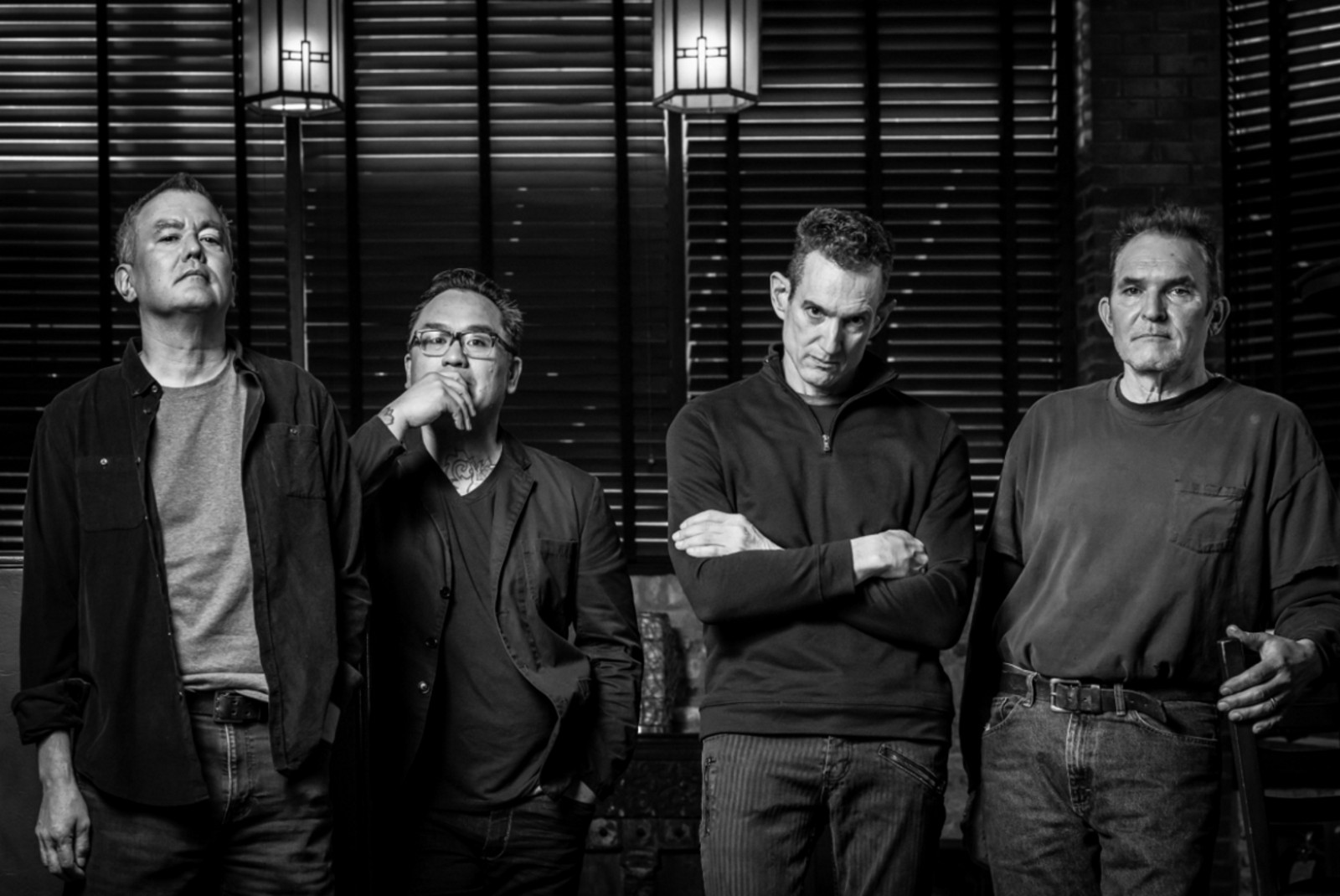The United States appears to be turning the page on the Olympic history of the 1500-meter run. In unprecedented fashion, American Cole Hocker upset Tuesday's men's 1500-meter final with a blistering 3:27.65 time, taking gold in the event. And yet another surprise, American Yared Nuguse took home the event's bronze medal, solidifying two American medalists from the 1500-meter run. American Hobbs Kessler also took fifth in the race.
Hocker, 23, became just the fourth American ever to win the Olympic 1500-meter run. The most recent American 1500-meter winner, USA's Matthew Centrowitz, ended a 108-year drought of gold for the United States in the event from his win during the 2016 Rio Olympics.
But Hocker's win --- from a racing standpoint --- was arguably more impressive.
Hocker was faced with an intensely competitive field. The 2020 Tokyo Olympic 1500-meter champion, Norwegian Jakob Ingebrigtsen, headlined the competition. The race also featured Great Britain's Josh Kerr, who took home bronze in the 2020 Olympics, and Kenya's Timothy Cheruiyot, who took silver in Tokyo.
Ingebrigtsen, 23, attempted to win the race from the start, forcing the rest of the field through a blistering ~54-second opening lap and ~1:51 through 800 meters. His plan appeared to be working, but the final 100 meters proved detrimental to his opportunity to become only the second person ever to repeat as 1500-meter Olympic champion.
The rest of the pack caught up to Ingebrigtsen as he appeared to tire out. Hocker attempted a Lane 1 pass on the inside of Ingebrigtsen, but was thwarted. Kerr then bolted on the outside. Hocker remained patient, somehow slipping through the inside of Ingebrigtsen and taking over Kerr with barely any real estate to spare.
Nuguse, 25, wheeled around Ingebrigtsen late, too, and snuck in the finish line for a bronze finish. He was .01 seconds away from overtaking Kerr for second place. Only once in Olympic history has the USA finished first and second in the 1500-meter run, dating back to the 1904 St. Louis Olympics.
In Olympics past, the 1500-meter final has churned out tactical races, starting slow, then finishing fast. But the forceful speed of Ingebrigtsen's daring race plan yielded incredible times for the field.
Hocker's 3:27.65 time set a new Olympic record. Kerr's 3:27.79 finish set a Great Britain national record. Nuguse's 3:27.80 time is a personal best, as is Kessler's 3:29.45 for his career. The Netherlands' Niels Laros and Italy's Pietro Arese also set national records for their respective countries.
But the magnitude of both Hocker and Nuguse bringing USA medals from the event cannot be understated.
The 1500-meter run has been perennially dominated by African countries before Centrowitz's 2016 win. Between 1988 and 2012, Kenya won three gold medals, Algeria won two and Morocco won in 2004. Only one American brought home a medal from the event in that time frame (Leonel Manzano, silver, 2012 London Olympics).
And when Ingebrigtsen splashed onto the scene with an Olympic win in 2020 at just 19 years old, it appeared he would dominate for future Olympics to come. He was the heavy favorite to win the event coming into the 2024 Olympics.
But the USA turned the page on the event with Hocker and Nuguse stealing away medals. The 21-year-old Kessler also finished fifth, solidifying three Americans in the top five.
Tuesday's 1500-meter Olympic final marks three American medals from the past three Olympics in the 1500-meter run, and four medals in the last four Olympics. That's the same number of 1500-meter medals the United States collected between the 1920 and 2008 Olympics.
American distance running has traditionally been charted by the dominance of African countries in the Olympics. But if there was a time that the tides appeared to be turning in the USA's favor, it's never more than now.
Shocking Upset: Hocker Claims Gold, Ingebrigsten Finishes Fourth
It was meant to be a showdown between rivals Josh Kerr of Great Britain and Norway's Jakob Ingebrigtsen.
Cole Hocker had other ideas.
The American claimed a sensational surprise gold in the men's 1500m, beating the pre-race favourites in a shocking final 200 metres to cross the line in a new Olympic record time of 3:27.65 and marked a second win for Team USA in the last three Olympic Games, with Matthew Centrowitz winning at Rio 2016.
While the Briton Kerr held on for Paris 2024 silver in a personal best time of 3:27.79, the reigning Olympic champion Ingebrigtsen faded over the final metres, finishing in a hard-to-believe fourth place.
It was another American, Yared Nuguse, who claimed bronze in 3:27.80.
It's the first time in the modern Games that the US has seen two men podium in the 1500m.
“It’s an unbelievable feeling,” a breathless Hocker said after. “I just felt like I was getting carried by the stadium and God. My body just kind of did it for me. My mind was all there and I saw that finish line.”
“Winning gold was my goal this entire year,” he added. “I wrote that down and I repeated it to myself even if I didn’t believe it.”
The race was a thrill from the start, with Stade de France roaring as the gun went off. Ingebrigsten opted to go out in front, a lead he would hold for every 100 metre marker up to the final bend, though Kerr, Hocker and Nuguse remaind just a whisper behind.
It was there that Hocker made his move, the 23-year-old from Indianapolis, finding space on the inside of the track. The world silver medallist indoors in Glasgow in early March, Hocker is known in American circles for his kick.
And it worked - on the Olympic stage.
Having been sixth at Tokyo 2020, Hocker reveled in the role of spoiler, throwing his arms aloft as he crossed the finish line, disbelief splashed across his face.
Kerr, sunglasses tightly on as usual, could barely believe it.
“I obviously wanted the Olympic gold medal. I got a silver. It’s better than bronze,” he told Eurosport. “You know I executed today the best 1500m race I’ve ever done in my life on the biggest stage by over a second.
“It’s difficult to control what anyone else does in these situations but I controlled myself, I positioned myself well. I got beat by the better man on the day and I have to walk away from these championships with my head held high.”
For Ingebrigtsen, it marked the first major international podium he has missed since the World Championships in 2019, when he was fifth.
But Hocker said having the spotlight focused elsewhere was actually a help for his eventual win: “I kind of told myself that I’m in this race too,” he explained. “If they let me fly under the radar, then so be it. I think that might’ve just been for the best.”
“My performances showed me that I was capable of running 3:27, whatever it took,” Hocker continued. “I knew I was a medal contender, and I knew that if I get it right, it would be a gold medal. I’ve been saying that.”
And a gold medal he got.
Ingebrigtsen Blames Early Pace for Loss
While Ingebrigtsen took that early lead and sustained it, he said he went out too fast, and didn't know how to alter the pace of the race before it was too late - literally.
“I opened with a 54-second lap [and] that wasn’t the plan at all,” he said. “It was at least two seconds too fast. I was thinking about slowing down, but the next lap was almost the same speed. I ruined it for myself by going way too hard.”
“I felt really strong and I have had a good progression with races this year. I didn’t realise what pace it actually was. It was not the plan to open that hard.”
Podium Results
Gold: Cole Hocker (USA)
Silver: Josh Kerr (GBR)
Bronze: Yared Nuguse (USA)
See all the results on Olympics.com.

















